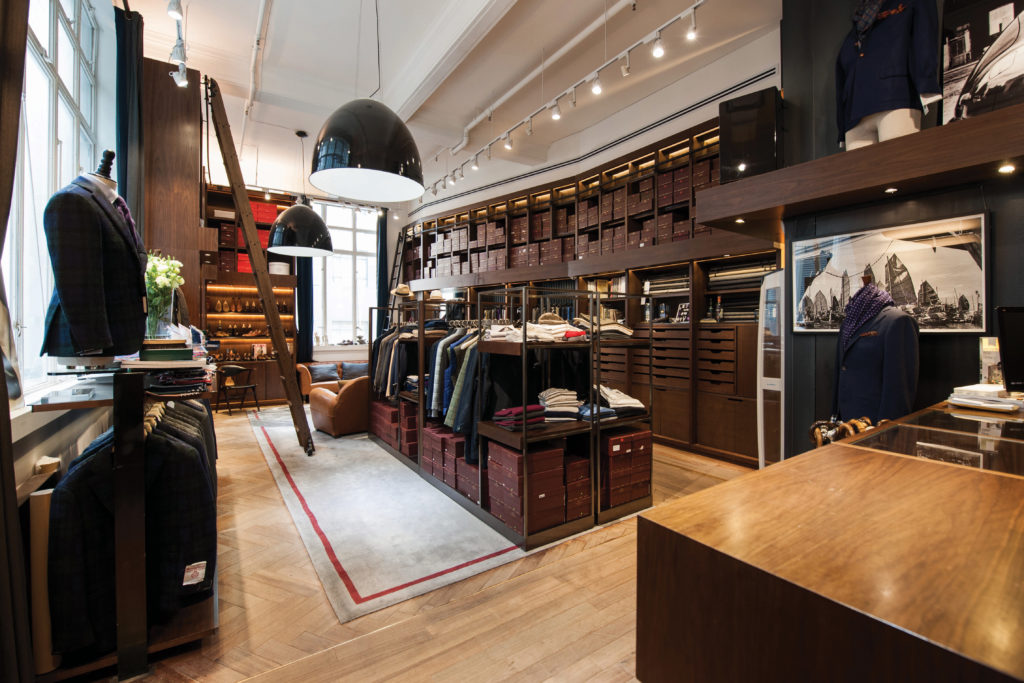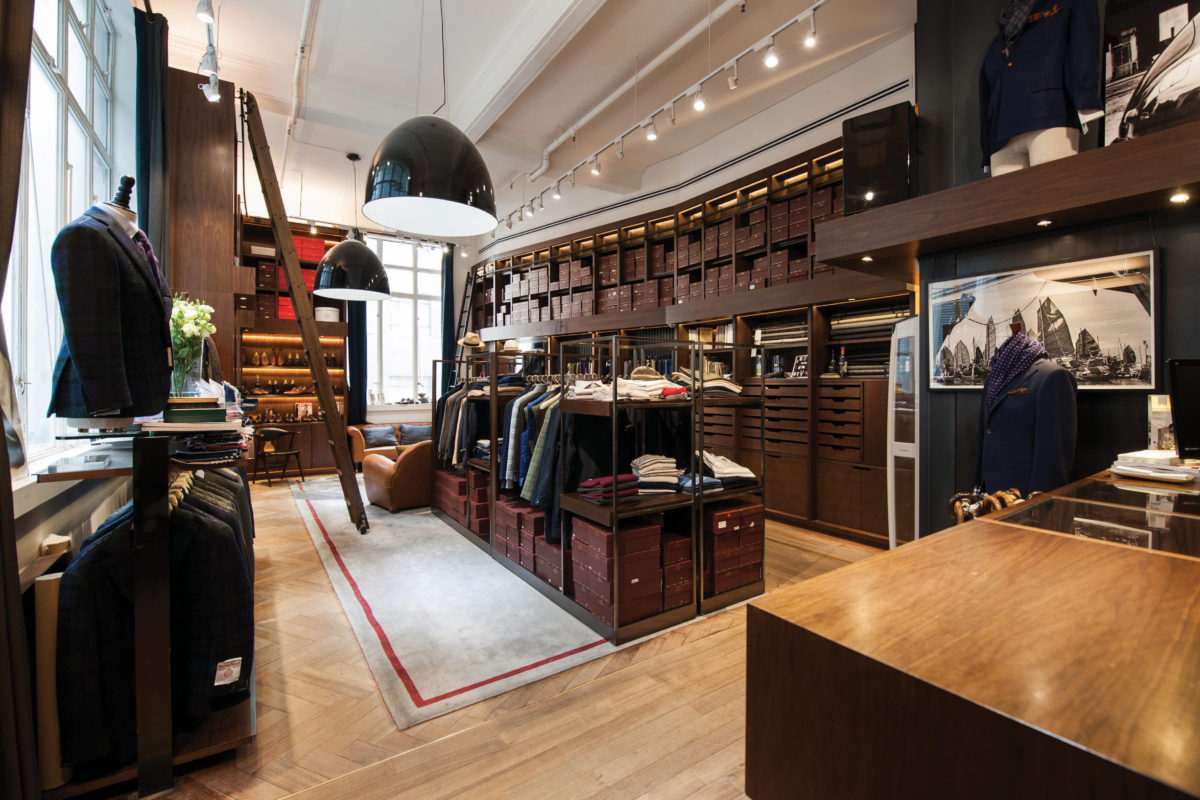SURVIVAL STRATEGY: RETAIL’S NEW GUARD GETS SERIOUS ABOUT STAYING IN BUSINESS


The past decade has taught us that as the world has evolved, menswear retailing has had to follow suit. Since the economic shakedown of 2008, men are not getting as dressed up as they once did. In fact, some do not need to dress up at all, as many now work as freelancers or consultants. According to the Bureau of Labor Statistics, in 2014, 23 percent of employed persons did some or all of their work from home.
What’s more, social media and internet shopping have made the world smaller, as we can now buy virtually anything anywhere. But at the same time, men are shopping more, spending more and are more interested in how they look. Fortunately for our industry, despite the precarious economy and an unstable world, new guard retailers have much opportunity to capture a new generation of shoppers.
The tricky part appears to be figuring out how. In the past few years, many contemporary stores with great product and seemingly viable business models have been struggling or have already closed their doors.
Take Carson Street (the store that I considered the epitome of new guard menswear with top labels including Michael Bastian and Missoni and an equally exclusive customer base). In January of this year, Carson Street moved from their original 1,000-square-foot location on Crosby Street to a bright airy loft on Greene Street, thereby tripling their selling space.
Moreover, by focusing less on tailored clothing and more on selling exclusive, narrowly distributed contemporary designer brands such as Lou Dalton, Craig Green, Rare Weaves and Visvim, they seemed to have created a winning strategy. (They also dropped “Clothiers” from their name.)
Then in February, co-founder Brian Trunzo along with partner Matt Breen launched Deveaux, their own take on a designer collection that they planned to retail and wholesale. In early spring, Trunzo unexpectedly announced he was leaving; shortly after, the store announced it would be closing at the end of June.
When I recently sat down with Trunzo — now a consultant himself — in the garden of Saturdays, a surf-inspired sportswear shop just a few blocks from the original Carson Street location, I asked what he considered the biggest challenge facing emerging retailers. “You need to stay true to who you are as you evolve, and make sure your customer evolves with you,” he responded.

I asked Trunzo what advice he would give to a retailer just starting out today. He responded without hesitation: “Be yourself. Don’t chase trends. And hire a Special Projects or Experiential Director.”
We also discussed how retailers today cannot simply sell clothes; they need other ways to keep customers entertained and coming back. Store owners have so much to focus on (buying, selling, running the store) that this Experiential Director is now a critical role.
When I asked Trunzo if it was a challenge getting brands to sell Carson Street, he responded without hesitation. “Initially not at all, but as we evolved into the designer world it became more of a challenge, especially brands that were already selling to other retailers downtown, or who were contemplating opening their own stores,” he said.
Mark Cho, Alan See and Ethan Newton opened The Armoury in Hong Kong in 2010, where they now have two locations. In 2013, they opened a third location in Tribeca. Their retail mantra was to sell products with exceptional craftsmanship, outstanding design and timeless style. They have a true passion for classic menswear and hope to share this passion with others. The store carries such brands as Ascot Chang, Borsalino, Drake’s, Fox Umbrellas, Frank Clegg, Liverano & Liverano, Nackymade, Rimowa and Ring Jacket.
I asked Cho, who is in Japan on a buying trip, about the key challenges facing this new guard of better men’s retailers. “The biggest one is exposure,” he said. “Exposure can come from a number of different places, all of which require time, effort and money.” Cho’s three pillars are “physical exposure (i.e. a good location), a strong social media presence and effective advertising.
“Retail is as much about a customer’s time and experience in the store as it is about the products he walks out the door with,” said Cho. “Building a wardrobe is an enjoyable experience, but it competes with numerous other enjoyable options in a person’s life.”
Brand exclusivity is a big concern for The Armoury, Cho admitted. “I worry about over-saturation, both brand availability and over-distribution (the number of stores that sell the same stuff ). In the long term, as shops become more homogeneous, they’re under more pressure to compete solely on price. This is ultimately bad news for everyone.”
Clearly, the current retail environment is challenging, due to over-saturation of brands, too many stores, and tech-savvy customers who purchase everything online at the best price. But for every Scoop that shuts down and Carson Street that closes suddenly, a Spruce opens in Chicago or there’s a new Magasin in Culver City or Stag in Texas and California.
The retail pendulum swings both ways, and fortunately, there are still opportunities, especially in under-saturated markets, for merchants who are creative, nimble and willing to provide a unique shopping experience.




